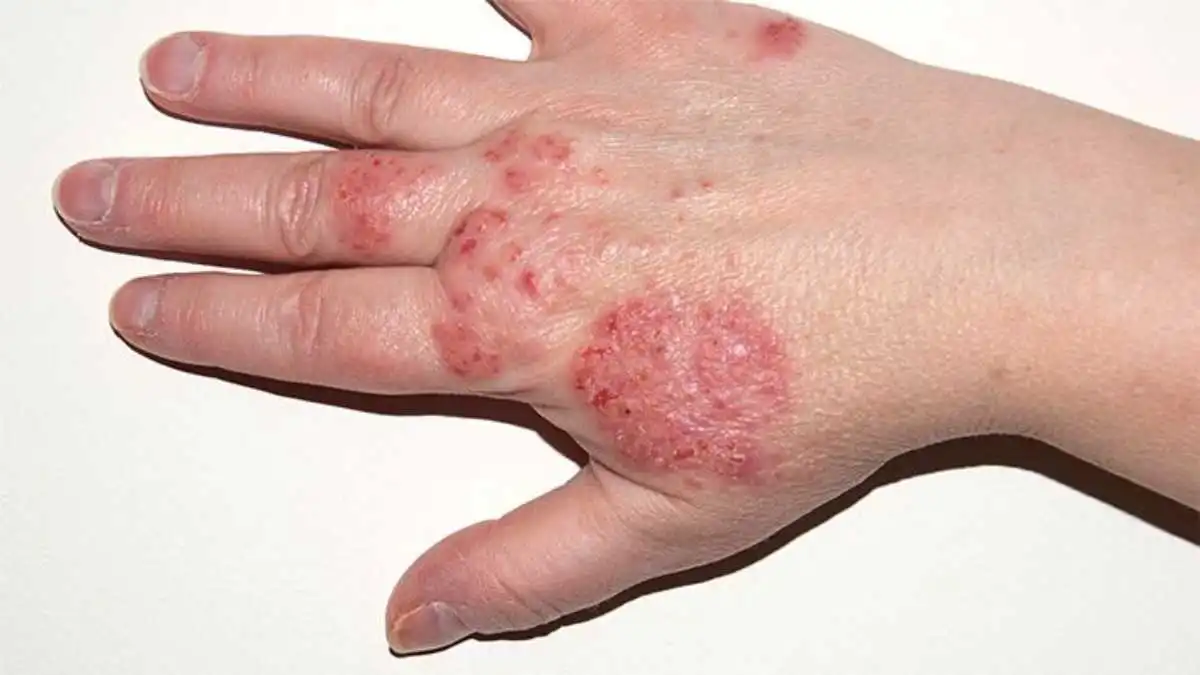HEALTH AND FITNESS
Eczema Explained: Signs, Symptoms, and Underlying Causes

Imagine dealing with dry, itchy skin that just won’t go away. That’s the reality for many people with eczema, a common skin condition that affects millions worldwide. But what exactly is eczema? This article will dive deep into what eczema is, its signs and symptoms, and the underlying causes. By understanding these aspects, you can better manage or even prevent flare-ups in yourself or your loved ones.
Table of Contents
What is Eczema?
Eczema, also known as atopic dermatitis, is a chronic condition that makes your skin red and itchy. It’s more common in children but can occur at any age. Eczema is a long-lasting (chronic) condition that tends to flare periodically and then subside. The skin affected by eczema can be dry, thickened, and scaly. Understanding what eczema looks like is crucial in diagnosing and treating it effectively.
Eczema look like
Eczema can appear differently depending on the person. Do you want to know what does eczema look like? It typically presents as patches of skin that are red, dry, and itchy. In some cases, these patches can ooze, become crusted, or harden. However, the appearance of eczema can vary widely across different skin tones—on lighter skin, eczema tends to look redder, whereas on darker skin, it might look brown, purple, or gray.
Recognizing the Signs of Eczema
Recognizing eczema involves observing certain key signs. These include:
- Dry skin: This can be severe and often accompanies the itchiness.
- Itching: This is one of the most common symptoms, which can become more intense at night.
- Red to brownish-gray patches: Often found on the hands, feet, ankles, wrists, neck, upper chest, eyelids, inside the bend of elbows and knees, and in infants, the face and scalp.
- Small, raised bumps: These may leak fluid and crust over when scratched.
- Thickened, cracked, or scaly skin: Chronic eczema can cause the skin to become thick and leathery.
- Raw, sensitive, swollen skin from scratching: Scratching can further irritate the skin, increasing discomfort.
Understanding the Symptoms of Eczema
The symptoms of eczema can range from mild to severe and can cause significant physical discomfort and emotional distress. They often include:
- Persistent itching, which can lead to a cycle of scratching and skin damage.
- Dryness, which can feel tight and uncomfortable.
- Inflammation, leading to redness and swelling.
- Discharge, especially if the eczema becomes infected.
Underlying Causes of Eczema
Eczema is believed to be driven by a combination of genetic and environmental factors. The skin barrier function is defective in people with eczema, which can allow moisture out and germs in. Immune system abnormalities and environmental exposures also play critical roles. Triggers can include:
- Irritants: These can be soaps, detergents, shampoos, disinfectants, juices from fresh fruits, meats, or vegetables.
- Allergens: Dust mites, pets, pollens, mold, and dandruff can lead to eczema.
- Microbes: Bacteria such as Staphylococcus aureus, viruses, and certain fungi.
- Hot and cold temperatures: Hot weather, high and low humidity, and perspiration from exercise can all trigger eczema.
- Foods: Dairy products, eggs, nuts and seeds, soy products, and wheat.
- Stress: This is not a direct cause but can worsen symptoms.
Risk Factors for Developing Eczema
Certain factors increase the likelihood of developing eczema:
- Family history: Having a parent or sibling with eczema, asthma, or hay fever.
- Age: Commonly appears in infants and young children, though it can continue into adulthood or start later in life.
- Allergies and asthma: People with these conditions are more likely to develop eczema.
- Occupation: Jobs that expose you to certain irritants and substances can increase risk.
Common Myths About Eczema Causes
Several myths about eczema causes persist. It’s crucial to debunk these to understand the condition better:
- Myth: Eczema is contagious.
- Fact: Eczema cannot be passed from person to person.
- Myth: Eczema is just dry skin.
- Fact: While dry skin can be a symptom, eczema is a more complex condition with immune aspects.
Conclusion
Understanding eczema from its symptoms to its underlying causes can empower those affected to manage their condition effectively. Remember, each person’s experience with eczema is unique, and managing it often requires a comprehensive approach involving lifestyle changes, medical treatment, and, importantly, support. If you suspect you or your loved one has eczema, it’s essential to consult a healthcare provider for an accurate diagnosis and appropriate treatment.
-

 GENERAL1 week ago
GENERAL1 week agoChristofle – For Those Who Dream of Family Heirloom Silver
-

 GENERAL2 months ago
GENERAL2 months agoUncovering the World of кинокрадко: The Dark Side of Film Piracy
-

 GENERAL4 weeks ago
GENERAL4 weeks agoUnveiling the Art of преводсч: How Translators Bridge Language Barriers
-

 SPORTS2 months ago
SPORTS2 months agoDiscover the World of Football with Streameast: Watch Your Favorite Leagues and Tournaments


























